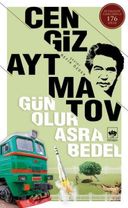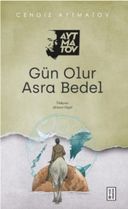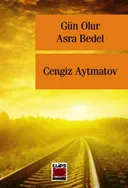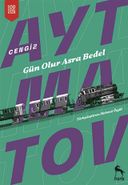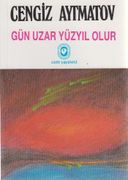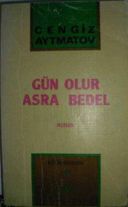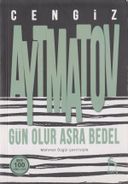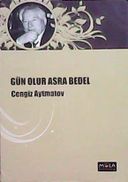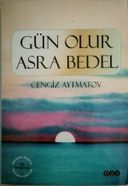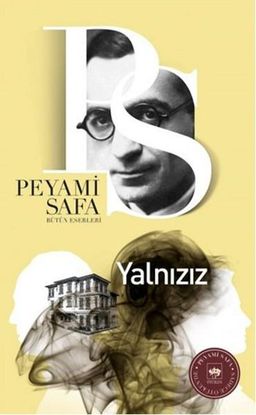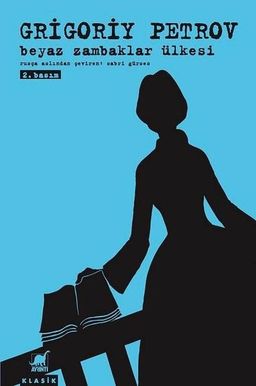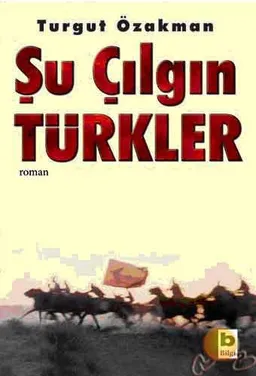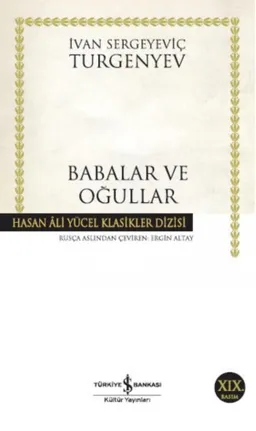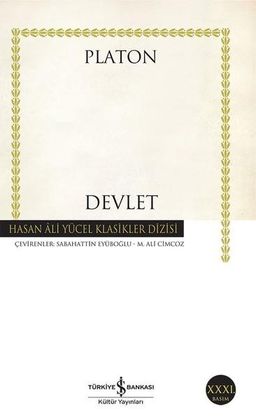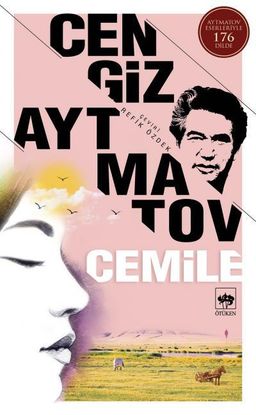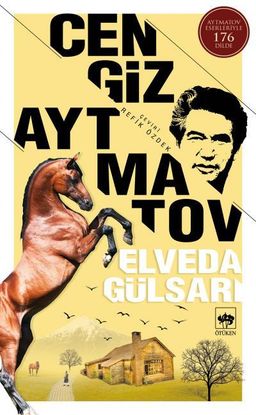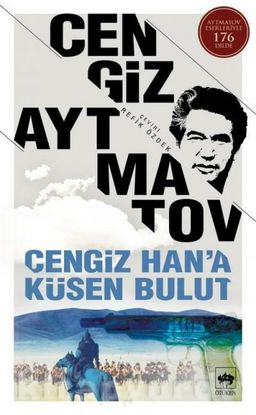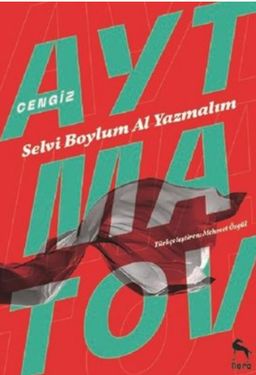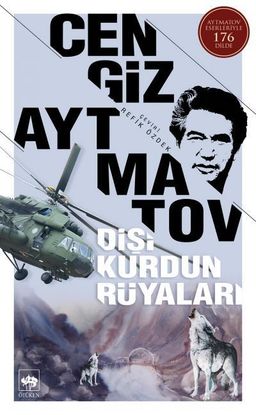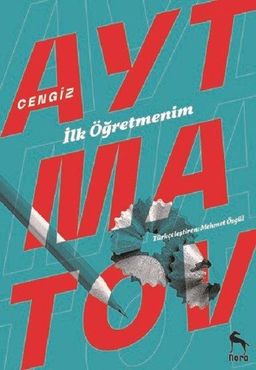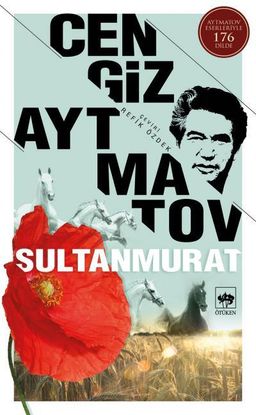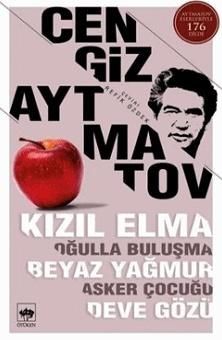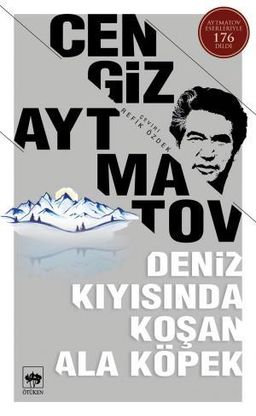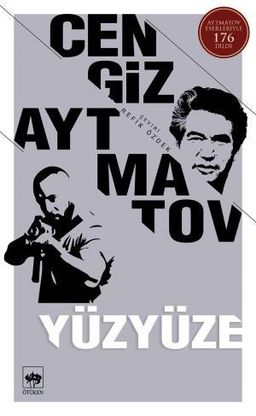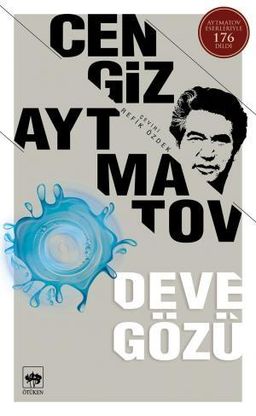Gün Var Əsrə Bərabər
Cengiz AytmatovAbout Gün Var Əsrə Bərabər
Gün Var Əsrə Bərabər subject, statistics, prices and more here.About
Ç.Aytmatovun “Gün var əsrə bərabər” romanının baş qəhrəmanı Yedigey vicdanlı, yorulmaq bilməyən zəhmətkeş, öz yüksək mənəvi borcuna sadiq bir insandır. Müəllif qəhrəmanın taleyini müasir dövrün bir sıra problemləri və bütün bəşəriyyətin sabahkı günü ilə müqayisə edib, dünyada əmin-amanlığın, xeyirxahlığın və humanizmin təntənəsini ən böyük qələbə kimi səciyyələndirir.
Author: Cengiz Aytmatov
Translator: İshaq İbrahimov
Estimated Reading Time: 11 hrs. 20 min.Page Number: 400Publication Date: April 2015First Publication Date: 1980Publisher: Qanun NəşriyyatıOriginal Title: И дольше века длится деньISBN: 9789952360301Country: AzerbaijanLanguage: AzericeFormat: Karton kapak
Other Editions
Gün Olur Asra Bedel
39.1k okunmaÖtüken Neşriyat · March 2021 · 413 syf
Gün Olur Asra Bedel
2,619 okunmaElips Yayınları · November 2007 · 400 syf
Gün Olur Asra Bedel
2,063 okunmaÖtüken Neşriyat · 2010 · 426 syf
Gün Olur Asra Bedel
641 okunmaKetebe Yayınları · June 2021 · 444 syf
Gün Olur Asra Bedel
625 okunmaElips Kitapları · November 2016 · 409 syf
Gün Olur Asra Bedel
615 okunmaNora Kitap · 30 March 2017 · 416 syf
Gün Var Əsrə Bərabər
185 okunmaQanun Nəşriyyatı · April 2015 · 400 syf
Gün Uzar Yüzyıl Olur
105 okunmaCem Yayınevi · June 2011 · 400 syf
Gün Olur Asra Bedel
78 okunmaÖtüken Yayınları · 1993 · 432 syf
Gün Uzar Yüzyıl Olur
16 okunmaCem Yayınevi · 1982 · 344 syf
Gün Olur Asra Bedel
13 okunmaNora Kitap · March 2017 · 410 syf
Gün Olur Asra Bedel
11 okunmaMola Kitap · October 2010 · 318 syf
Gün Olur Asra Bedel
6 okunmaDüş Ülkesi Yayınlari · 2009 · 370 syf
Gün Olur Asra Bedel
4 okunmaElips Kitap · 5 November 2005 · 415 syf
Book Statistics
All statistics
Statistics of this edition
Reader Profile of the Book
Kadın% 70.6
Erkek% 29.4
0-12 Yaş
13-17 Yaş
18-24 Yaş
25-34 Yaş
35-44 Yaş
45-54 Yaş
55-64 Yaş
65+ Yaş
About the Author
Cengiz AytmatovYazar · 68 books
This text has been automatically translated from tt. Show Original
Cengiz Aytmatov, (Kyrgyz: Чыңгыз Айтматов (Çıňğız Aytmatov), Russian: Чингиз Торекулович Айтматов) (b. 12 December 1 928, Kyrgyzstan - 10 June 2008, Germany).
Famous Kyrgyz Turk writer, journalist, translator and politician. He was born on December 12, 1928 in the village of Sheker of Talas province in northwestern Kyrgyzstan. His father, Torekul Aytmatov, was a distinguished statesman in Soviet Kyrgyzstan, but was arrested in 1937 and executed by firing squad in 1938. His mother, Nagima Hamziyevna Abdulvaliyeva, a Tatar girl, was a theater actress. Its name was inspired by Genghis Khan.
His youth coincided with a troubled period. At that time, he had to struggle with the political system that was just beginning to establish itself, and also with the war. He started working at a very young age; because II. The effects of World War II on the USSR also affected young people. Since adults were at war, young people had a great responsibility. At the age of fourteen, he joined the secretariat in his village. Here he worked in jobs such as counting agricultural machinery and tax collector. From his village, he went to Kazakhstan and studied at Cambul Veterinary Technical School. Later, he went to Bishkek, the current capital of Kyrgyzstan, and continued his education at the Frunze Agricultural Institute. He then transferred to the Maxim Gorky Literary Institute and studied in Moscow between 1956 and 1958. He started writing in the Pravda newspaper in these years. He became famous with his works and was accepted as a member of the Union of Soviet Writers in 1957. He received the Lenin Prize in 1963. His works have been translated into more than one hundred and fifty languages. He represented the Soviet Union and the Russian Federation as ambassador between 1990 and 1994, and then the Kyrgyz Republic until 2008.
Aytmatov fell ill on May 16, 2008, in Kazan, the capital of Russia's Republic of Tatarstan, where he went to film the movie of his novel "A Day Will Be Worth a Centuries" and was brought to Germany for treatment with a diagnosis of kidney failure. Cengiz Aytmatov, who was treated at the Clinicum Nord in Nuremberg, Germany, fell into a coma. He died in Nuremberg on June 10, 2008.
Books
Beyaz Gemi
8.2/10
Toprak Ana
8.9/10
Gün Olur Asra Bedel
8.5/10
Cemile
7.8/10
Elveda Gülsarı
8.4/10
Cengiz Han'a Küsen Bulut
8.5/10
Selvi Boylum Al Yazmalım
8.8/10
Dişi Kurdun Rüyaları
8.7/10
İlk Öğretmenim
9/10
Sultanmurat
8.3/10
Kızıl Elma - Oğulla Buluşma - ...
8.1/10
Deniz Kıyısında Koşan Ala Köpe...
8.5/10
Yüzyüze
8.4/10
Kızıl Elma - Oğulla Buluşma
8.2/10
Deve Gözü
7.8/10
